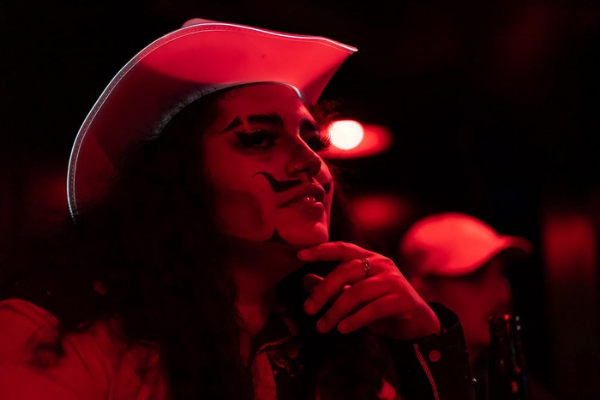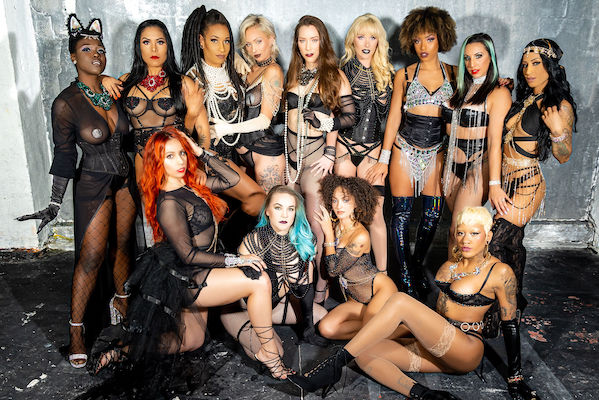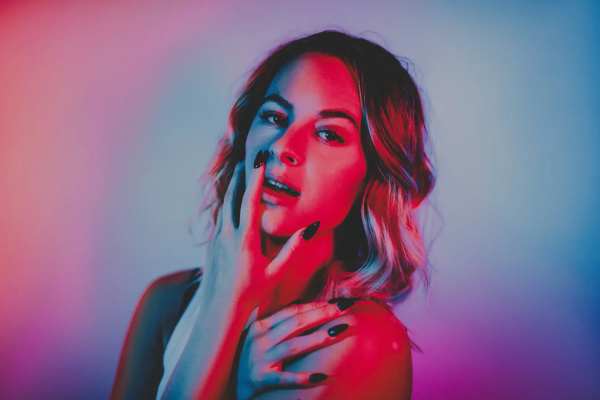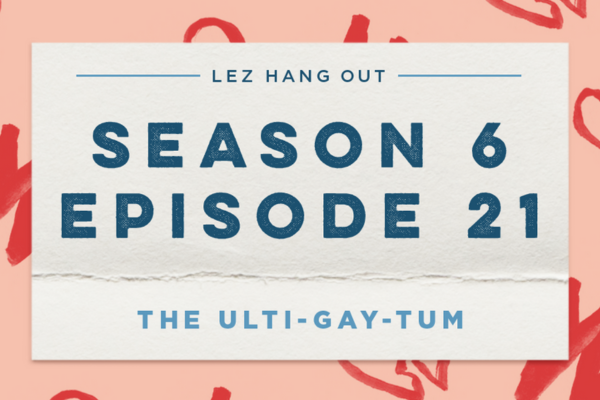
7 New Queer Memoirs To Read This Summer
May 13, 2022
3 Erotic Vacation Destinations for an Incredibly Sexy Time
May 16, 2022Drag kings have been performing for decades—if not centuries—yet while drag queens flourish in the public eye, kings still struggle to be recognized, booked, and taken seriously.
They are a subculture of queer identity, marginalized for existing in the male-dominated world of drag performances. Drag queens, who were traditionally and still most often are though less frequently cisgender gay men, dress up in feminine clothing and put on layers of makeup to appear more feminine. Drag kings are usually queer women who don masculine clothing and wear makeup that highlights masculine features like beards, mustaches, square jaws, and thicker eyebrows. They often dress up as traditional manly men based on cultural identities like the southern cowboy or a Latin lover with a five-o’clock shadow. Kings create their performances based on emotions and aim to mix passion, impact, theatrics, and storytelling.
Roxy Jonathan Valle or ‘Johnny Sin Gentleman,’ 30, uses he/him pronouns when he performs and they/them out of drag. They created their drag king persona out of the idea that he is the respectable man that every woman deserves. His motto is: The Last Gentleman in L.A.
“Johnny is a respectable feminist, very bottom, and very gender fluid,” explains Valle. “A man who just wants to love people and give respect to people in a way that just doesn’t exist in the world right now.”
Melissa Furtado or ‘Manny Oakley,’ 27, based her king persona on Annie Oakley and the southern ‘rhinestone cowboy.’ She says that her performances and her persona are an homage to the American dream that her parents chased on their way from Cuba: “Because I’m the child of immigrants, the American cowboy is kind of like a special symbol to me,” says Furtado. To her, it’s also a form of laughing at overt masculinity and white supremacy. “I do a lot of country numbers, but I’m a queer, brown, woman and so a part of it is kind of like spitting in the face of white supremacy. For me, that’s the appeal of doing country as myself,” explains Furtado.
It’s also more than just a performance, it’s an outlet: “You can ask any performer, this is straight up therapy,” says Furtado. “We want to air out our problems and this is the place to do it.”
Drag kings don’t get nearly the recognition drag queens do. “We just want to bring visibility and bring our definition of masculinity to the forefront just like these men dressing up as women to show their femininity,” says Johnny Sin Gentleman.
Before the mainstream success of RuPaul’s Drag Race which first aired in 2009, many drag queens only did underground performances at secret locations. Now, they have a platform, recognition, and more mainstream success, which comes with higher approval rates from establishment hosts who book performers for drag brunches, drag queen story hours, and other drag events. Overall, queens are the ones who attract the money crowd.
Valle has worked on the production team for RuPaul’s Drag Race and believes the production of a show featuring drag kings is years away, saying there is simply not enough support from the audience or from producers.
“When [people] see a drag king, they see a woman, dressed like a man who’s about to make dick jokes. Someone who can’t dance or do the splits or death drop and whatever else RuPaul’s Drag Race has popularized that is the ‘wow factor,’ that everyone wants to see in a show,” says Valle. This is a big reason that drag kings struggle to get booked. A lot of them aren’t seen to have the same ‘wow factor’ as drag queens.
Valle says that there must be more support from the audience to get to the point of production of a show like RuPaul’s Drag Race or more in-person king programming. The public has to be vocal about wanting to see more diverse line-ups of drag performers. So tell every entertainment establishment you can that there needs to be more equal representation.





